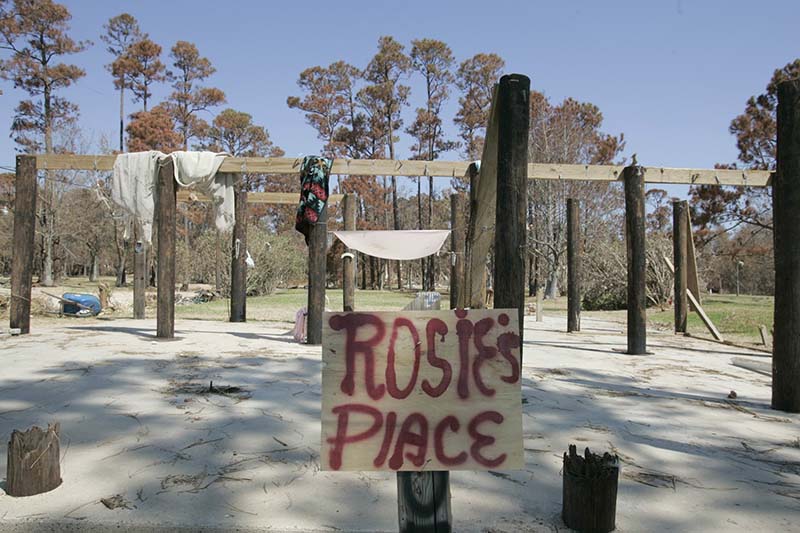(OSV News) — The 20th anniversary of Hurricane Katrina marks a call to “renew our commitment to racial equity and justice in every sector of public life,” said two U.S. Catholic bishops.
Auxiliary Bishop Roy E. Campbell Jr. of Washington, chairman of the U.S. Conference of Catholic Bishops’ Subcommittee on African American Affairs, and retired Auxiliary Bishop Joseph N. Perry of Chicago, chairman of the USCCB’s Ad Hoc Committee Against Racism, issued a joint statement Aug. 26 reflecting on the tragedy.
Among deadliest hurricanes in U.S. history
The hurricane, one of the five deadliest in U.S. history, struck the nation’s Gulf Coast Aug. 29, 2005, as a Category 3 storm, with 120-140 mph winds and stretching 400 miles across the coast. At one point, the storm became a Category 5, but weakened before striking land.
Katrina made multiple landfalls, inflicting what the National Weather Service called “staggering” damage and loss of life, particularly in Louisiana and Mississippi. A total of 1,833 were killed by the storm, which at the time caused some $108 billion dollars in damage, according to NWS.
New Orleans was ravaged by the storm, with at least 80% of the city flooded by Aug. 31, 2005, NWS noted on its website, adding that the impact was “heightened by breaks in the levees that separate New Orleans from Lake Pontchartrain.”
Key failures in governmental response
Compounding the damage were key failures in governmental response, and in their statement, Bishop Campbell and Bishop Perry said that “despite the scale of devastation, it took days before the federal government responded with aid.”
More broadly, they observed, Hurricane Katrina “threw into stark focus the deep racial and socio-economic disparities across various sectors, including environmental justice, systemic housing inequality, and disaster response.”
The bishops pointed out that “some of the most catastrophic damage occurred in neighborhoods like the Ninth Ward, a predominantly Black neighborhood, which was under so much water that many of the residents had to take refuge in their attics and on their rooftops to avoid the rising tides.
‘Pray with those who still suffer’
“Today, we pray with those who still suffer from the loss of family and friends and whose very identities were affected,” said the bishops.
They also noted that the storm resulted in “the loss of irreplaceable items handed down through generations such as photos, videos, diaries, genealogical records, documents, and other mementos that are an essential means of sharing a person’s existence, history, and culture.”
In addition, said the bishops, “many residents were unable to return home because gentrification caused their former neighborhoods to become unaffordable.
‘Suffering of many Black residents’
“Disparities, rooted in historical and structural racism, intensified the suffering of many Black residents,” they said.
The hurricane and the response missteps “revealed the fragility of our cities to natural disasters and the reality of poverty among the most vulnerable in our country,” the bishops noted.
Bishop Campbell and Bishop Perry extolled the “powerful witness of the Catholic Church” that countered the “inadequate governmental response” to Katrina, citing the work of Catholic Charities USA and its local agencies, the USCCB’s Catholic Campaign for Human Development and Catholic Home Missions Appeal, the Archdiocese of New Orleans and the Knights of Columbus.
The two bishops stressed the “dire need for equitable investments in climate resilience and preparedness,” amid storms intensified by climate change.
Climate Change journal
One group of researchers, writing in a 2014 issue of the journal Climate Change, found that surge simulations suggested Katrina’s flood levels were between 15% to 60% higher than they likely would have been around the year 1900.
“Katrina revealed how quickly entire communities can be overlooked, their cultures erased as neighborhoods vanished — taking with it cherished cultural spaces and historic landmarks,” said Bishop Campbell and Bishop Perry.
They added that two decades later, “many still struggle to rebuild intangible bonds,” with “ongoing mental and physical injuries” still evident today, while the “gap between the wealthy and poor continues to grow.”
Economic system and exploitation
The bishops invited all people to reflect on the words of Pope Leo XIV during his May 18 inauguration Mass homily, in which the pope lamented that “in our time, we still see too much discord, too many wounds caused by hatred, violence, prejudice, the fear of the other, and an economic system that exploits the Earth’s resources and marginalizes the poorest.”
Concluding their statement, Bishop Campbell and Bishop Perry said, “Let us join together, as one community, responding to the call to be leaven for the world. As Church, let us be a lifeboat in the flood waters of injustice.”
Gina Christian is a multimedia reporter for OSV News. Follow her on X @GinaJesseReina.




